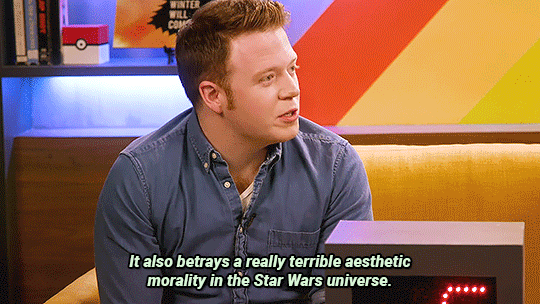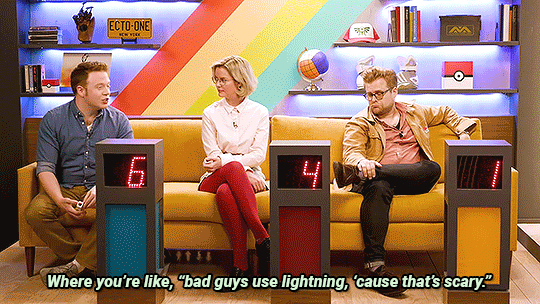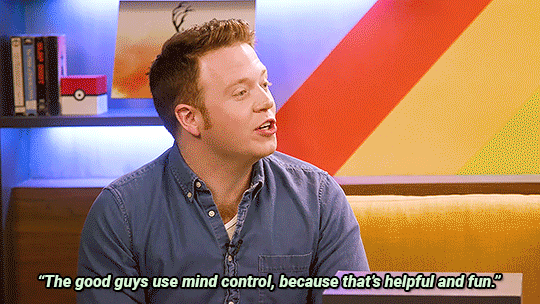oooh look at me im a GM, I have LUKEWARM TAKES about TTRPGS and I PAINT MINIATURES TO A PERSONALLY ACCEPTABLE STANDARD [Cisbi M23 (he/him), posting tabletop takes, painted miniatures, thoughts on whatever nonsense is taking up my brain at the time]
Last active 60 minutes ago
Don't wanna be here? Send us removal request.
Text
That Jenner can’t come soon enough frfr
Cyclops (Rasalhague Dominion)




“It’s Pride Month, Grumium Creations, you know what that means!”
“What, do you want us to like, make gay BattleMechs?!”
There are few ‘mechs that love BV more than the Cyclops. This insanely cool looking command machine is kind of an odd sibling of the Banshee - another Assault Mech forced by tech limitations to give something up in exchange for a big enough engine to move 4/6. Where the Banshee gave up firepower, the Cyclops gave up armour. This thing has shockingly thin armor for an Assault or hell, even a heavy in most of its variants (though there are several that drop speed to become generically decent assaults) - in a battle balanced by tonnage I’d take the Banshee every time, but fortunately BV means Cyclopes generally cost about as much as heavies, so that makes them much more viable. The mobile HQ variant is enormously funny.
Alright, so I finally have to actually get a good recipe together for Rasalhague Drakøns blue-grey. The successive washes are a real spirit breaker and man, this thing looked mega ugly until I applied highlights. Just gotta decide on and record a mix of Griffon Blue and Night Lords Blue and stick to it, damn the consequences. Red bits were fun, and I hope to do several more pride flag-toting mechs in future. I would have initially done Lesbian on this one (the MechWarrior I have assigned to it in my head is she/her) but I’m currently away from home and I left my oranges behind - sad! Assigned bisexual by paint availability, and there’s probably a joke about my own sexuality in there somewhere. Anyway, happy pride MechWarriors! I love all my queer siblings (and our allies) - and I’m taking suggestions for a cool Kanji to put on my upcoming Kuritan Jenner’s head!
25 notes
·
View notes
Text
Y’know, maybe it’s for the queer content and that wouldn’t be out of character at all for Tumblr, but also it marked the last Rasalhague ‘mech I painted as mature. Maybe Tumblr is just run by Kuritans
Cyclops (Rasalhague Dominion)




“It’s Pride Month, Grumium Creations, you know what that means!”
“What, do you want us to like, make gay BattleMechs?!”
There are few ‘mechs that love BV more than the Cyclops. This insanely cool looking command machine is kind of an odd sibling of the Banshee - another Assault Mech forced by tech limitations to give something up in exchange for a big enough engine to move 4/6. Where the Banshee gave up firepower, the Cyclops gave up armour. This thing has shockingly thin armor for an Assault or hell, even a heavy in most of its variants (though there are several that drop speed to become generically decent assaults) - in a battle balanced by tonnage I’d take the Banshee every time, but fortunately BV means Cyclopes generally cost about as much as heavies, so that makes them much more viable. The mobile HQ variant is enormously funny.
Alright, so I finally have to actually get a good recipe together for Rasalhague Drakøns blue-grey. The successive washes are a real spirit breaker and man, this thing looked mega ugly until I applied highlights. Just gotta decide on and record a mix of Griffon Blue and Night Lords Blue and stick to it, damn the consequences. Red bits were fun, and I hope to do several more pride flag-toting mechs in future. I would have initially done Lesbian on this one (the MechWarrior I have assigned to it in my head is she/her) but I’m currently away from home and I left my oranges behind - sad! Assigned bisexual by paint availability, and there’s probably a joke about my own sexuality in there somewhere. Anyway, happy pride MechWarriors! I love all my queer siblings (and our allies) - and I’m taking suggestions for a cool Kanji to put on my upcoming Kuritan Jenner’s head!
25 notes
·
View notes
Text
Cyclops (Rasalhague Dominion)




“It’s Pride Month, Grumium Creations, you know what that means!”
“What, do you want us to like, make gay BattleMechs?!”
There are few ‘mechs that love BV more than the Cyclops. This insanely cool looking command machine is kind of an odd sibling of the Banshee - another Assault Mech forced by tech limitations to give something up in exchange for a big enough engine to move 4/6. Where the Banshee gave up firepower, the Cyclops gave up armour. This thing has shockingly thin armor for an Assault or hell, even a heavy in most of its variants (though there are several that drop speed to become generically decent assaults) - in a battle balanced by tonnage I’d take the Banshee every time, but fortunately BV means Cyclopes generally cost about as much as heavies, so that makes them much more viable. The mobile HQ variant is enormously funny.
Alright, so I finally have to actually get a good recipe together for Rasalhague Drakøns blue-grey. The successive washes are a real spirit breaker and man, this thing looked mega ugly until I applied highlights. Just gotta decide on and record a mix of Griffon Blue and Night Lords Blue and stick to it, damn the consequences. Red bits were fun, and I hope to do several more pride flag-toting mechs in future. I would have initially done Lesbian on this one (the MechWarrior I have assigned to it in my head is she/her) but I’m currently away from home and I left my oranges behind - sad! Assigned bisexual by paint availability, and there’s probably a joke about my own sexuality in there somewhere. Anyway, happy pride MechWarriors! I love all my queer siblings (and our allies) - and I’m taking suggestions for a cool Kanji to put on my upcoming Kuritan Jenner’s head!
#battletech#mechwarrior#ttrpg#3151posting#tabletop gaming#miniatures#bisexual#pride#mecha#lgbt#painting battletech#mechposting#mini painting#painting#painting miniatures#wargaming#my art#futhark runes on the head got kinda chunky#need a new fine tip brush#the bi-clops
25 notes
·
View notes
Text
Happy pride month to my dad. When I came out as bi to him, this man googled what it ment, look at me and said "ohh. Yeah. You get that from me. You'd have far more siblings of I only shaged women." And went right back to his work emails.
56K notes
·
View notes
Text
I can’t stop thinking about crocodiles for some reason so here’s some cool pictures I found of probably the second largest one in captivity, his name is Utan:




isn’t he beautiful
listen to the SOUND when he bites
youtube
and that’s not even a real power bite, that’s mostly just heavy bone falling on heavy bone from his jaws and the air rushing out from between them
221K notes
·
View notes
Text
eating michigan shaped sour candy rn. i'm being informed they're called michigummies
37K notes
·
View notes
Text
I primarily find them to be like, a situational tool. Never really been satisfied with the results of full contrast paint (esp shades like black), but they can be passable as bases to work on top of in my experience. Like you still gotta highlight imo so it kind of ends up being just a quick and dirty way to edge highlight
I think I do not enjoy contrast paints very much
9 notes
·
View notes
Text

POV: You are on the bridge of the Dire Wolf.
36 notes
·
View notes
Text
rent lowering "i really dont care what word transmascs use to describe the ways they're oppressed tbh" gunshot
728 notes
·
View notes
Text
It’s been a while since I touched any 40K modes (or warhammer overall), the money is a lot and the amount of painting is intimidating and BattleTech has really filled that gap very definitively, I’ve come to strongly prefer it as a franchise as well.
I was in the hobby shop recently and remember thinking, “ha, wouldn’t it be funny if I started collecting T’au now that I’m mecha-pilled? Just make robots a full facet of my personal aesthetic the way dinosaurs already are?” I’m technically a tyranids player, for reference, though the last ‘Nid I actually finished was a Warrior like 11 months ago.
This art *really* makes me want to start actually collecting T’au. This shit is the closest any 40K art has gotten to hitting the BattleTech itch.



370 notes
·
View notes
Text
This is genuinely one of the most promising indie rpg presses operating right now - I endorse the fuck out of Eureka and encourage those gremlins who can afford it to toss some capital their way. Silk and Dagger is good too and includes art of lingerie-clad drow. Satirically, of course.

no sales for 5 days..
#eureka: investigative urban fantasy#ttrpg#rpg#ttrpg tumblr#indie ttrpg#I may also have a made a significant one time donation to anim in the past#so like#also some sunk cost at play lmao
269 notes
·
View notes
Text
Sick, I know Jello Biafra and Mojo Nixon did a cover of Love Me, I’m a Liberal as well - we fuck with more contemporary punk interpretationsof folk bangers for sure

3K notes
·
View notes
Text
I love this post so much. I hesitate to definitively say “the more Star Wars there is, the less special and interesting it becomes” overall because there’s plenty I like about the expanded universe and clone wars era and whatnot, but I do think that the more Star Wars there is, the more it changes the feeling of the setting as a whole. That probably sounds stupid and obvious so maybe I can explain a little
Like, the positive way to view this is that Star Wars, as a property, can be a home for a wide range or stories that vary considerably in tone and theme. It can comfortably fit the low-stakes Space Western stuff in The Mandalorian (at least in the early seasons before it was decided that every canon character ever had to show up), the (attempted) grand politics of the Prequels, and the gritty subversive punch of Andor within it all at once. It’s all still Star Wars.
Of course, the flip side of this is where you end up with YouTube bozos whining that anything new “doesn’t feel like Star Wars”, especially when it’s an idea that takes the franchise to a genuinely new place, literal (The Acolyte with the High Republic) or thematic (Andor being intended for an adult audience). To connect this to battletech, my beloved, it’s like hearing grognards grumble that the IlClan era doesn’t feel like battletech anymore - they’re wrong, it absolutely does, just not their preferred section of the franchise. This, of course, assuming that said YouTube bozo or Battletech grog isn’t just using that statement as camouflage for discomfort with minority characters being in the spotlight more often.
I do feel very drawn to the more mystical force and loosely defined universe presented by the Original Trilogy - increasingly, I find myself preferring less concrete lore to more. Too much lore is how you end up with the Wookiepedia article about Darth Vader’s suit confirming that his helmet is polished with woodoo hide and that Palpatine built him wrong on purpose to keep him weak or whatever. This shit is fucking lame and completely demystifies Vader IMO, it all just feels like post-hoc justifications for perceived “errors” from a fanbase that intakes media not as stories with their own goals and artistic elements, but as documentaries of fictional worlds. See also my most hated Star Wars trivia piece, that lightsaber blades attract one another slightly, a bit of fluff clearly invented to deflect the observation that prequel characters looked like they were attacking each other’s sabers rather than each other, an early criticism of fight choreography in the prequels. Like, would it have been so bad to just let that be rather than come up with some contrived bullshit to lampshade it? It didn’t even matter, everyone (even unenlightened fools such as myself who still think the prequels are pretty bad) agrees that prequel fights are fucking sick, even if they are overchoreographed.
Now, while I prefer the idea of a mystical, personal version of the force, it’s also less useful to the idea of the Jedi that Lucas was trying to convey in the prequels - an archaic, cumbersome organization that wields too much authority and has grown too comfortable to question itself. The deep spirituality and inward curiosity that vision of the Force presents would be at odds with the Jedi Order as lost and fallible. If the prequels were better executed, the fact that the Order presents a much more mundane, “solved” version of the force could itself be an element of that motif. The stupid fucking midi-chlorian counter could be a symbol of how out of touch with the spiritual aspect of the Force the order had become, and it might even make me hate it slightly less. It’s not so much that it’s a worse version of the force, just more suited to its own story - is what I would like to say. Unfortunately, Count Dooku uses Force Lightning.
Why. Why does he do this? Putting aside the idea that it’s cooler for Lightning to be a Palpatine-unique power, it seems incongruous to Dooku’s character! Now, the characterization of Count Dooku is pretty inconsistent- especially with how deep into the dark side he is. Is he more of a rogue Jedi who’s grown disillusioned with the order and the republic, or a truly evil, scheming villain? Depends what story you’re taking in, but given how perfunctory his introduction in the films is, giving this random guy the fucking ultimate evil force power just cheapens it unnecessarily. Hell, to put on my Wookiepedia hat for a minute here, Dooku’s a duelist, a specialist with the lightsaber. He’s not a sorceror freak like Palpatine, why can he do this insane wizard shit?
There’s other examples of stuff like that, but I think it’s overall emblematic of the tradeoff I pointed to right at the start. Star Wars is large enough to contain many kinds of stories - but elements that strengthen or streamline some stories then become canon to all the others, even if they weaken (and so are pointedly unaddressed by) those others. The other classic example is how almost every new empire era story makes Order 66 less effective and Luke Skywalker’s role as the resurrector and inheritor of the Jedi tradition less impactful. That’s the price of the grand franchise, and all I can say is that if I wind up running Age of Rebellion with my ttrpg players, I’ll be glad they’re the kind of people who’re cool with playing it a little loose with canon in service of a good story.






#star wars#dropout#um actually#brennan lee mulligan#battletech#stars war#Andor#I hope they never explain metachrists in trench crusade#I hope they never give us the deep lore#I know it’s in vogue to rip on soulsborne storytelling for being vague and contradictory#but Joseph Anderson is wrong about that actually#leaving gaps for the imagination and speculation is so much better than having twelve thousand wiki articles
42K notes
·
View notes


